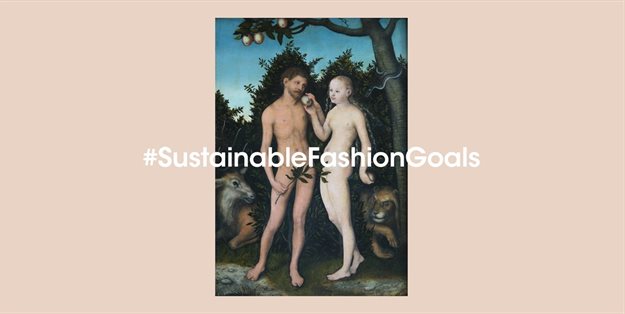





We are more and more aware of what and how we purchase, making changes based on how brands and brand owner values align with our moral compasses. But it is easier to call out some industries than it is others. Think of the plastics industry, for example.
Fashion is one of those industries in which the issues are ‘hidden’ and, if we can’t ‘see’ it, we don’t object to it. This means the wrongs within the fashion industry could take far longer to be corrected than they should. Weekly we are told of the negative impact of fast fashion or how massive corporations undercut small vendors and abuse workers. Sustainable fashion has emerged as a cause and philosophy which is appealing to many of the conscious who are also fashion conscious.
Far from being a chore, part of what makes sustainable fashion exciting is the innovative ways in which we are going to need to start thinking. We can no longer look at fashion production as a linear action but rather as a circular economy which can feed and sustain itself. Sustainability is a long game in which we might not see the results of in our lifetime. But it’s our responsibility to think further ahead and actually consider the future of our progeny.
One of the stand out fashion practitioners in South Africa, Lesiba Mabitsela, is a person who is acutely aware of the importance of sustainability. He thinks people are starting to be more aware of where their clothes come from and that pushes big brands to rethink how they produce clothes. It also allows the smaller brands to possibly become more coveted, or as coveted as the Nikes of today. It provides for clients and customers to be more educated in terms of clothes, fashion and value.
Fashion buyer, Jamie Leigh Daniels, is under no illusions about the challenges that face the industry. According to her, the cost of labour and the cost of materials is the biggest hurdle we face. Fast fashion is cheap and we have become seduced by trendy clothing that is constantly available to us at ridiculously low prices. We want to buy everything for less, but somewhere in the process something must give. That usually comes at the cost of material and labour choices, using factories that aren’t ethical or compliant. If we want to transform the local fashion industry, we will have to relook how much we’re willing to spend on clothing. (Don’t worry we won’t leave you hanging, Daniels has some Do’s and Don’ts for us to help plan an ethical wardrobe at the end of this article.)

There are a growing number of big brands doing something, not much, but something for sustainability. H+M has Garment Collection initiative, Adidas has a series of ocean plastic sourced products, Patagonia is known for its ethical approach to business. Local brands like Selfi, Superella and aMaxhosa are also doing their thing to keep sustainable, despite huge financial pressures.
Ignoring environmental and social rights and wrongs are now things of the past. Even if you have no desire from a ‘right thing to d’” perspective, the detrimental effects of ignoring these changing norms will land you and your business on a heap of cancelled brands. You might very well find that, in the process of ensuring your products are created ethically, you have a far healthier relationship with the world, and your customers.
